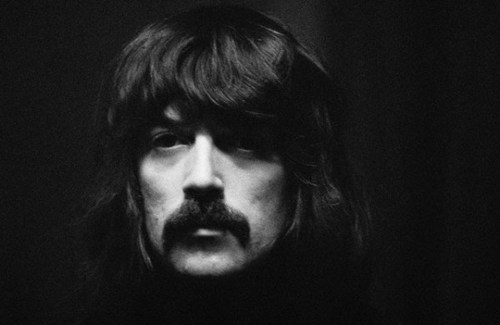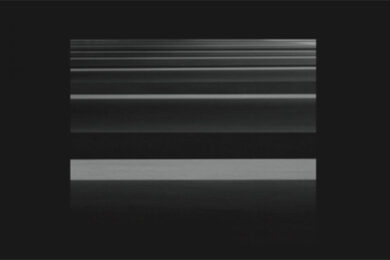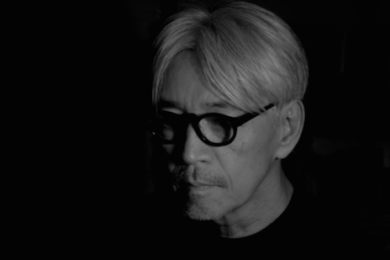Isn’t it funny how when someone dies, little things connected with them suddenly resurface in your mind, things you haven’t thought about for many years? Reading of the sad death of Jon Lord, I remembered the first time I heard his playing. It was in my schooldays, back in the 80s, and a local record shop was clearing out its collection of vinyl albums. A chance for me to invest my money garnered from a host of tedious summer jobs in something good.
Amongst the gems I picked up, (Black Sabbath’s Sabotage, Rainbow’s Rising and many others), was Deep Purple’s In Rock album. Opening with ‘Speed King’ and a flurry of howling guitars and distortion, I thought, ‘So far, so metal.’ Then suddenly this burst of near ecclesiastic Hammond playing from Jon Lord stoped the rampage of unrestrained riffs as though saying ‘stop now, muscle is nothing without melody’, and it was, and still is, absolutely magical.
The juxtaposition of light and darkness, melody and riffs, the game of ‘call and response’ from Lord and guitarist Ritchie Blackmore (something that can be heard to it’s ultimate effect on 1972’s live Deep Purple set, Made In Japan). I’ve read interviews with Bruce Dickinson where he mentions that he had exactly the same experience when he first heard In Rock. It is beyond musical skill (though that was there in spades, talent combined with years of practice and sheer hard graft) – no, it is musical magic, the right people in the right place at the right time. It is musical alchemy, taking base music and forging it into gold that still shines untarnished decades later. No one will ever play the Hammond organ like Lord and no one will ever fuse classical music and blues with such love and respect. He had a blessing that isn’t there now. There was no myriad of categories to hamstring music like today, you either loved it or you didn’t, but it wasn’t a commodity. It came from a place where heart met hard graft.
To me, an obituary of a man like Jon Lord who gave so much joy to the world through his music shouldn’t be a list of albums he played on, or songs he wrote. Rather, it should be the personal highlights, the little corners of my life he illuminated. So, also back in the 80s, was the first train trip I ever made to Dublin on my own. Of course, it was in search of records, I picked up several Deep Purple albums. 1971’s progressive Fireball, not a favourite of Blackmore (but conversely, much loved of Gillan) and a marvellously progressive piece of work (surely ‘No One Came’ is the best description ever of being a rock star, ‘Anyone’s Daughter’ is hysterical, and ‘The Mule’ is just so… out of there). 1974’s Burn (David Coverdale and Glenn Hughes’s Purple debut), was probably Purple’s most energetic offering since In Rock. Burn is such a joyous celebration of music – the title track features the kind of duelling solos that Lord and Blackmore excelled at. ‘Sail Away’ is in every respect a musical trip, and ‘A200’, features not only one of Ritchie Blackmore’s best ever solos, but one of Lord’s first excursions into 70s synthesiser territory (so good were the sessions for Burn, that even a track relegated to a B-Side like ‘Coronarias Redig’ is truly superb. It doesn’t have lyrics because the band were too, ahem, ‘tired and emotional’, to write any!)
After Purple broke up in 1974, Lord stayed with the rock genre, playing briefly with Paice Ashton and Lord, before picking up a regular gig with Whitesnake (a very different ‘Snake to the MTV-friendly hair band that conquered the world in the late 1980s). Lord would, of course, rejoin Purple in 1984, staying until his retirement in 2002. (Replaced by the experienced Don Airey at Lord’s own recommendation. This was a retirement due to health reasons; relations within the band, post Blackmore’s final departure to all things medieval, always remained warm). I saw Deep Purple on Lord’s final tour with them, and I’m not embarrassed to say it was wonderful. When you’ve looked forward to something for years, the fear creeps in…will it be as good as you want it to be? But it was all that and more. Lord was a revelation, not only as a player, but the relaxed casual way he played, totally at ease with his friends in band. And I feel that is one of the things that made Lord special – he was a gentleman. It’s word that doesn’t mean as much as it should these days. Nevertheless it should be reclaimed as such, because to people of a certain generation, it is the highest compliment a man could be paid.
Lord led a very active post-Purple retirement, playing with a diverse range of musicians such as Anna Phoebe, Cold Chisel legend Jimmy Barnes and Anni-Frid Lyngstad of Abba fame. His beloved classical music was explored as never before, for instance, his Durham Concerto, which was commissioned by Durham University for its 175th anniversary received its world premiere on 20 October 2007.
A final aspect of Jon Lord that must not go unheralded was his charity work, such as the Sam Buxton Sunflower Jam Healing Trust, a charity led by Deep Purple drummer Ian Paice’s wife Judy (who is twin sister to Lord’s wife Vicky). Indeed, the most recent recording I bought that featured Lord was Who Cares, a charity record featuring a staggering line-up (Lord’s long-time Purple companion Ian Gillan, Tony Iommi (reunited with Gillan for the first time on record since Black Sabbath’s 1983 Born Again), Jason Newsted, and HIM’s Linde Lindström). As well as being a splendid piece of music (how could it be otherwise?-it’s genetically and historically impossible!), the money was to aid charity work in Armenia (as a follow up to the Rock Aid Armenia album from 1990, also featuring Lord).
Only a few weeks ago, watching Heavy Metal Britannia repeated on BBC4, I was struck by Lord’s gentle and articulate manner. It was as though he had stepped out of another world. He was a pleasure to listen to. Ian Gillan once commented there was no one he would rather have a bottle of wine and conversation with. Jon Lord’s manner and music are a more eloquent tribute to this gentleman of rock than any words I can ever write, so, put on something Jon helped create, and remember him with what he loved best: his music.






